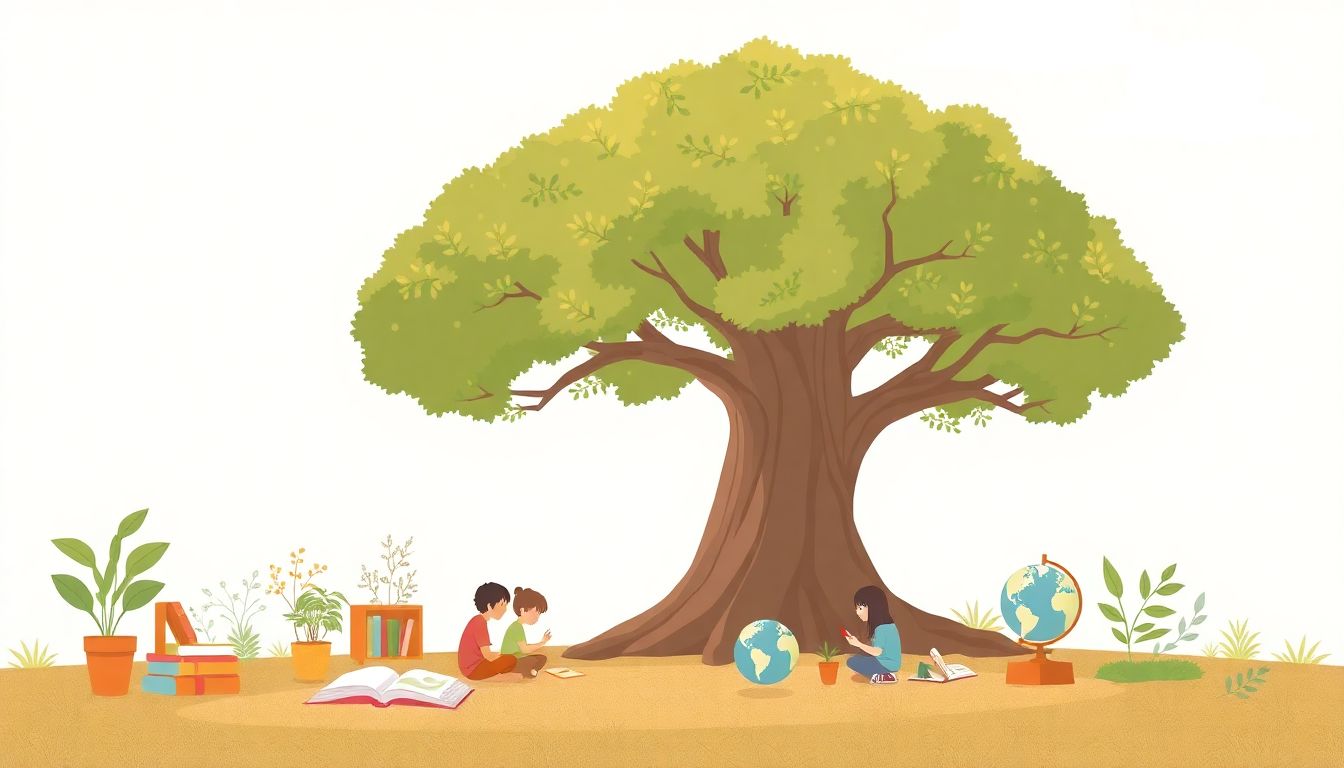Studying environmental science can feel overwhelming at times, especially with various topics like climate change, ecosystems, and renewable energy all vying for your attention. It’s easy to wonder where to start or how to stay organized. Trust me, you’re not alone in feeling this way!
But what if I told you that I’ve got some handy prompts up my sleeve to make those complicated topics more manageable and even fun? Stick around and you’ll discover valuable ideas that can help you dive into your environmental science studies with ease and clarity.
From understanding climate change impacts to exploring conservation strategies, we’ll cover a range of prompts tailored for every curious mind. Get ready to unlock your potential and deepen your knowledge in this crucial field!
Key Takeaways
- Environmental science encompasses topics like climate change, ecosystems, and renewable energy.
- Utilizing specific prompts can make studying these complex subjects easier and more engaging.
- Key areas of focus include climate change impacts, ecosystem health, renewable energy solutions, and environmental policies.
- Understanding conservation techniques and pollution management is essential for effective environmental practices.
- To enhance learning, consider using tailored prompts for each topic area in your studies.

Essential ChatGPT Prompts for Environmental Science Studies
Environmental science is a dynamic field that touches on various critical issues from climate change to biodiversity conservation.
To enhance your research and deepen your understanding, utilizing specific ChatGPT prompts can be a game-changer.
Below are tailored prompts that can assist you in navigating this discipline effectively.
Prompts for Researching Climate Change Impacts
Understanding the impacts of climate change is vital for developing effective solutions.
Here are some prompts to guide your exploration:
- Summarize the latest research findings on how climate change affects agriculture.
- What are the predicted impacts of sea level rise on coastal cities in the next 50 years?
- List and explain three adaptation strategies for communities facing extreme weather patterns.
- Describe the relationship between global warming and the increase in frequency of natural disasters.
- What mitigation measures can be implemented to reduce the effects of climate change on public health?
Prompts for Analyzing Ecosystems and Biodiversity
Ecosystem health and biodiversity are key indicators of environmental stability.
Use these prompts to dive deeper into these important topics:
- Identify five biodiversity hotspots and discuss their ecological significance.
- What services do ecosystems provide that are essential for human survival?
- Analyze the factors contributing to species extinction rates in tropical forests.
- How do invasive species disrupt local ecosystems and what are possible solutions?
- Describe the impact of habitat conservation efforts on endangered species recovery.
Prompts for Understanding Renewable Energy Solutions
Renewable energy plays a crucial role in transitioning to sustainable practices.
Here are prompts to help you understand various renewable energy solutions:
- Compare the advantages and challenges of solar power versus wind energy.
- Discuss the latest advancements in hydropower technology.
- What are the efficiency rates of different biomass and biofuels in reducing carbon emissions?
- Outline energy transition strategies for developing countries as they shift from fossil fuels.
- What sustainable energy policies have proven effective in Europe and how can they be adapted elsewhere?
For more insights on using prompts effectively, check out our posts on ChatGPT for Education and Creative Writing Prompts.

Prompts for Discussing Environmental Policy and Regulations
Understanding environmental policies is crucial for addressing environmental issues effectively.
Here are some prompts for exploring this area:
- Summarize the key provisions of the Paris Agreement on climate change.
- Evaluate the effectiveness of current pollution control regulations in your region.
- How do international environmental agreements impact national policies?
- Discuss the role of Environmental Impact Assessments (EIAs) in project approval processes.
- List and explain three major components of sustainable development goals (SDGs).
Prompts for Investigating Pollution and Waste Management
Pollution and waste management are hot topics that require urgent attention.
Use these prompts to delve into these important challenges:
- Identify the main sources of air pollution in urban areas and their health impacts.
- Discuss effective waste reduction strategies for households.
- What are the best practices for hazardous waste management in industries?
- How can communities improve recycling programs to increase participation?
- Analyze the environmental effects of seeking remediation for contaminated land.
Prompts for Studying Conservation Techniques and Strategies
Conservation techniques are essential for preserving biodiversity and ecosystems.
These prompts can enhance your understanding of conservation strategies:
- Describe the role of protected areas and reserves in wildlife conservation.
- What are the most effective community-based conservation projects you’ve seen?
- Analyze the funding sources available for conservation initiatives.
- Discuss the impacts of ecotourism on local ecosystems and communities.
- Examine successful habitat restoration projects and their methodologies.
Prompts for Assessing Environmental Sustainability Practices
Assessing sustainability practices is key to promoting environmental responsibility.
Consider these prompts for a thorough evaluation:
- List sustainable practices businesses can adopt to improve their ecological footprint.
- Evaluate the impact of life cycle assessments on product development decisions.
- What are the benefits of implementing green building practices in urban development?
- Discuss sustainable transportation solutions that have gained traction in cities.
- How can individuals measure and reduce their ecological footprints?

Prompts for Exploring Environmental Education and Awareness
Environmental education is key to fostering a deeper understanding of ecological issues.
Here are some prompts that can help you explore this essential area:
- What are the fundamental principles of environmental education that should be included in school curricula?
- List effective community outreach programs that promote environmental awareness.
- Discuss how eco-literacy initiatives can influence sustainable practices in households.
- Analyze the role of social media in raising awareness about environmental issues among youth.
- How can workshops focused on environmental advocacy empower individuals to effect change in their communities?
- What strategies can be employed to engage youth in conservation efforts effectively?
- Examine the impact of hands-on learning experiences, such as outdoor classrooms, on students’ environmental behavior.
FAQs
Consider prompts like “Discuss the latest climate change impacts on agriculture” or “What are projected temperature changes in different regions?” These encourage deeper insights into specific aspects of climate change research.
Use prompts like “Analyze the impact of deforestation on local biodiversity” or “What are the key components of a healthy ecosystem?” to explore important concepts in ecology and species interactions.
Try prompts such as “Compare solar and wind energy efficiency” or “What are barriers to adopting renewable energy?” These foster discussions on practical solutions and technology advancements in renewable sectors.
Utilize prompts like “What are the main goals of the Paris Agreement?” or “Discuss the effects of plastic regulations.” These questions facilitate deeper analysis of current policies and regulations impacting the environment.
